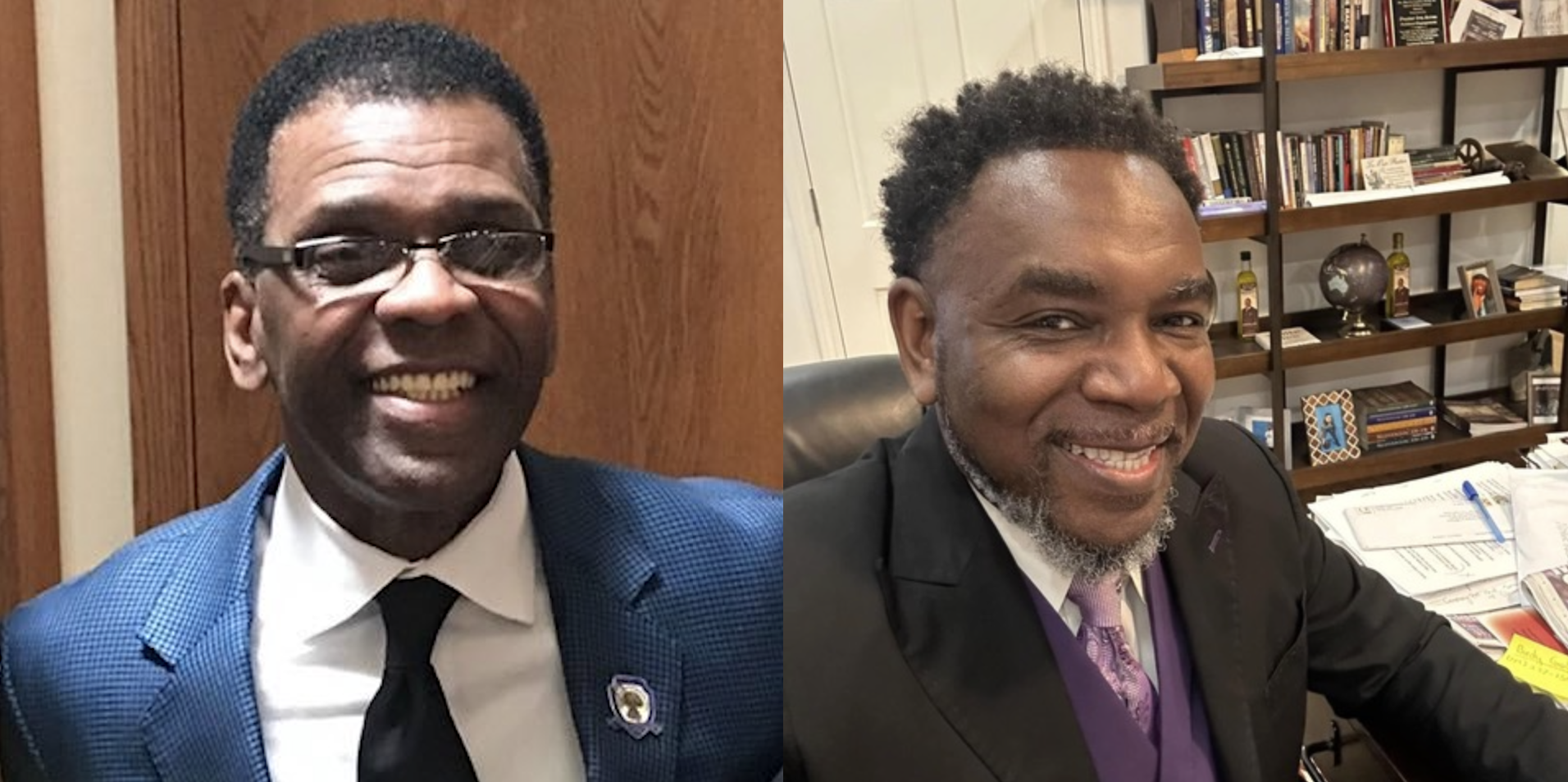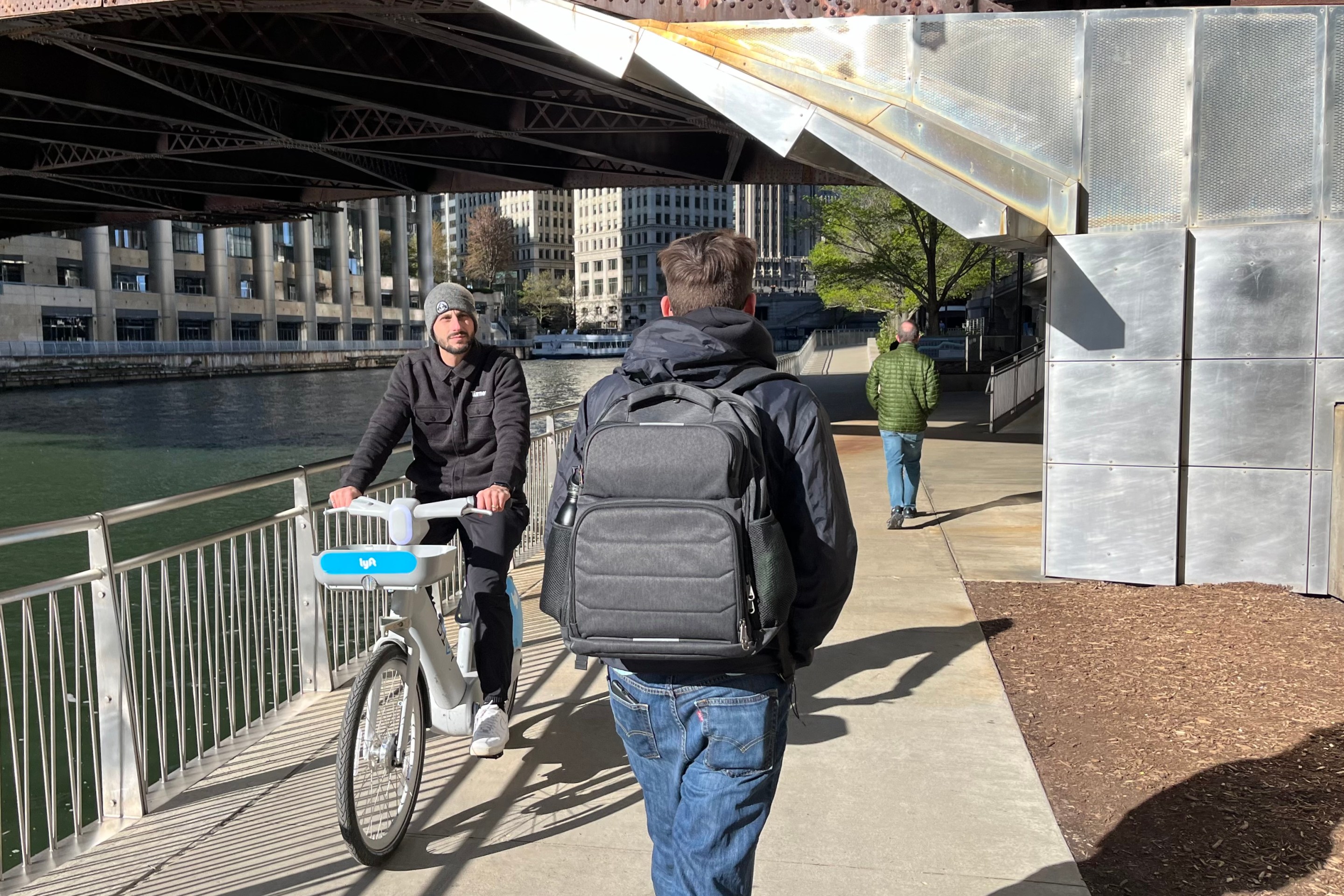These 16 alderpersons narrowly won the committee vote to let people drive at deadly speeds
7:25 PM CDT on June 21, 2022
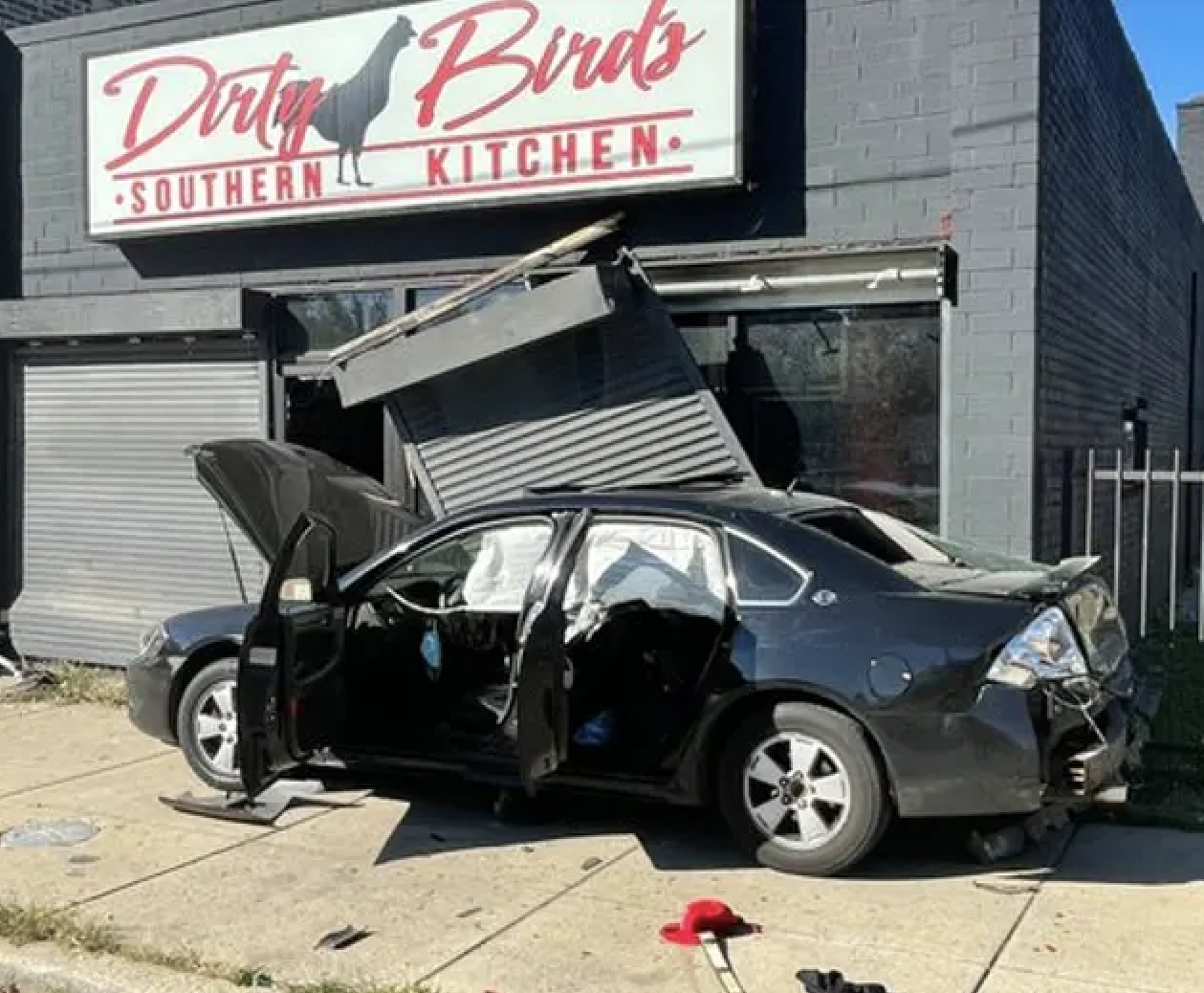
The aftermath of the high-speed crash that killed pedestrian Malinda Massey, 52, last September in Chicago’s Gresham neighborhood. Photo: Chicago Fire Department
Sadly, Ald. Anthony Beale's (9th) ordinance to let motorists drive at 39 mph in 30 zones – a speed at which a person struck by a driver will almost always die – passed Chicago's Committee on Finance by a razor-thin 16 to 15 vote.
Tomorrow the legislation will go before the full City Council, including the 19 alders who didn't weigh in today, and hopefully it will be defeated. But even if it passes with fewer than 34 votes, Mayor Lori Lightfoot can veto it, which she almost certainly will do.
Earlier today Streetsblog detailed why Beale's proposal to roll back the speed camera ticketing threshold from the current 6 mph to 10 mph is such a bad idea. In a nutshell, a recent UIC study found that from 2015-17, the cameras prevented 204 injury and fatality crashes. And the 6 mph rule, enacted in March 2021, appears to be making the cams even more effective. Injury crashes near speed cameras were down by 13 percent in January to April of this year, compared to the same period in 2019. In contrast, the injury rate across only dropped by 3 percent during that time.
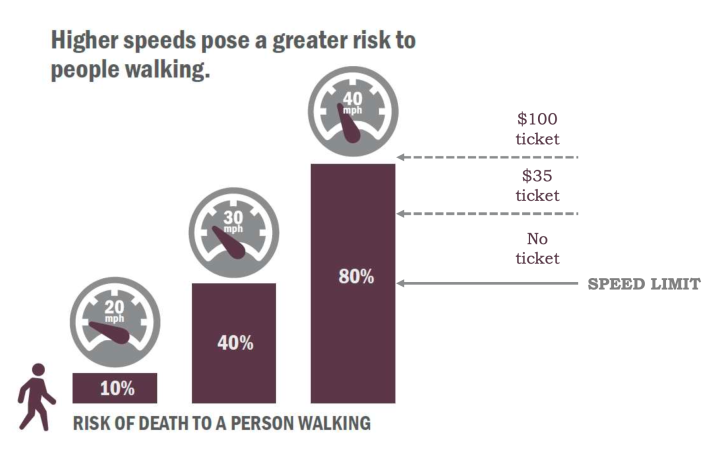
Moreover, studies show that while a pedestrian hit at 30 mph, Chicago’s default speed limit, has a 60 percent chance of survival, a person struck at 40 mph has a 90 percent chance of being killed. Beale's ordinance would make the de-facto default speed limit 39, which means many more people will be seriously injured or killed if it becomes law.

The vote for this legislation is particularly indefensible because this month speeding and/or negligent drivers killed three young children in Chicago: Rafi Cardenas, 2; Lily Shambrook, 3; and Ja’Lon James, 11.
Mayor Lori Lightfoot sent a statement in the wake of the vote that listed all of the alderpersons who supported this dangerous ordinance: Brian Hopkins (2nd Ward), Pat Dowell (3rd Ward), Sophia King (4th Ward), Leslie Hairston (5th Ward), Roderick Sawyer (6th Ward), Anthony Beale (9th Ward), Susan Sadlowski-Garza (10th Ward), Marty Quinn (13th Ward), Raymond Lopez (15th Ward), David Moore (17th Ward), Matthew O’Shea (19th Ward), Silvana Tabares, (23rd Ward), Anthony Napolitano (41st Ward), Brendan Reilly (42nd Ward), Tom Tunney (44th Ward), Debra Silverstein (50th Ward).
"Today, by a 16 to 15 vote, the City Council Committee on Finance voted to sanction higher speeds around schools and parks, when it seems that every day there is another traffic fatality because of speeding and reckless drivers," Lightfoot said in a statement. "It is simply unconscionable that, after losing 173 Chicagoans to speed-related traffic fatalities in 2021, some [alderpersons] are acting with so little regard for public safety."
The mayor also noted that, as mandated by Illinois law, money from speed camera tickets helps pay for policing, traffic safety infrastructure, after-school programming, Safe Passage staff, and other public safety programs.
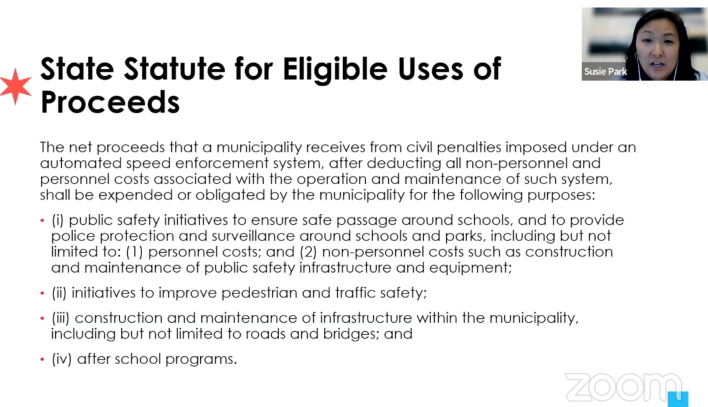
Streetsblog tweeted a full thread about today's meeting, but let's take a look at some of the more memorable statements – good and bad – alderpersons made during the lengthy discussion.
David Moore (17th), who's running for Illinois secretary of state, wants to eliminate the so-called "speed trap" aspects of speed cameras by making them more obvious, such as by adding electronic speed feedback signs and more warning signs. Streetsblog has no problem with that idea, which would encourage more motorists to travel at safer speeds, even if it would be less ticket revenue for the city.
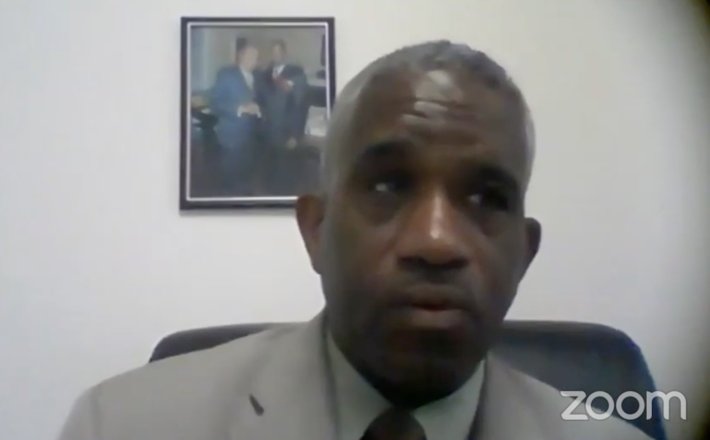
Nicholas Sposato (38th) said he supports keeping 6 mph rule, in part because suburbanites are speeding in border wards like his. "I don't have any sympathy for the people from Norridge, Park ridge, and Elmwood Park coming through my neighborhoods and driving like maniacs." He said he might actually be in favor of raising the fines for speeding.
Emma Mitts (37th) said she was upset when she got her first $100 speeding ticket (tickets for speeding by 6-9 mph are $35, while the fine for speeding by 11 mph+ is a Benjamin), but a reporter asked her why she didn't slow down. She said since then she's realized that drivers should slow down for safety.
Daniel LaSpata (1st) noted that the UIC study found that speed cameras prevented 36 severe and fatal injuries from 2015-17, and noted that the safety benefits of the technology are way more important than filling the city's coffers with fines. "I would be happy if [the cameras] provided zero revenue for the city of Chicago." He said the parents of the three kids recently killed by drivers don't care about revenue. "They want to see us to do everything we can to keep people safe."
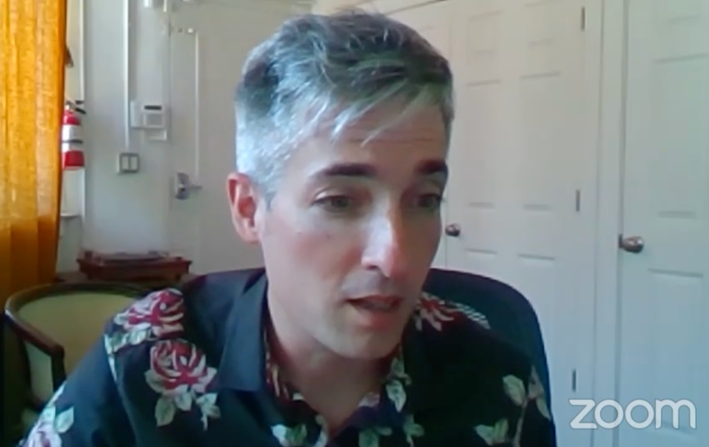
Sophia King (4th) said she "would love to see speed cameras on DuSable LSD" and asks how much revenue that would bring in. Streetsblog proposed that very idea earlier this month. But she also said, "I just don't want to balance the budget on the backs of those who can least afford it." However, under the city's new Clear Path ticket equity initiative, launched in April, low-income residents pay half price – only $17.50 for speeding by 6-9 mph, and there's also a ticket debt forgiveness program.
Leslie Hairston (5th) said that while she opposes traffic cameras, she has done everything she can to promote traffic safety in her district. That's obviously not true, since she blocked a proposed road diet with protected bike lanes on Stony Island Avenue in her ward, contributing to the bike crash deaths of Luster Jackson, 58, and Lee Luellen, 40, on that stretch of the avenue. Hairston also made the inaccurate statement that Lincoln Park has no speed cameras.

Anthony Beale (19th) made closing remarks as the ordinance sponsor, arguing that the speed cameras, which have prevented hundreds of injuries and fatalities, are a scam. He said the Council didn't get to vote on the Lightfoot's initiative to lower the ticketing threshold to 6 mph. That isn't really true. Alderpersons voted for the 2021 budget that included the change.
Streetsblog will cover the full Council vote tomorrow. Keep your fingers crossed that this wrongheaded legislation doesn't become law, or else many more Chicagoans, especially children and other vulnerable residents, will die in crashes.
In addition to editing Streetsblog Chicago, John writes about transportation and other topics for additional local publications. A Chicagoan since 1989, he enjoys exploring the city on foot, bike, bus, and 'L' train.
Stay in touch
Sign up for our free newsletter
More from Streetsblog Chicago
Johnson appoints one West Side pastor for CTA board, then nominates another West Side pastor to RTA board
Supporters argue that, despite his lack of transit expertise, Ira Acree’s social justice experience and political connections could be an asset for the RTA board.
Today’s Headlines for Thursday, April 26
The de-facto ban on riverwalk biking is back. What should we do about it?
In the short term, new signage is needed to designate legal areas for cycling on the path. In the long term CDOT should build the proposed Wacker Drive protected bike lane.
